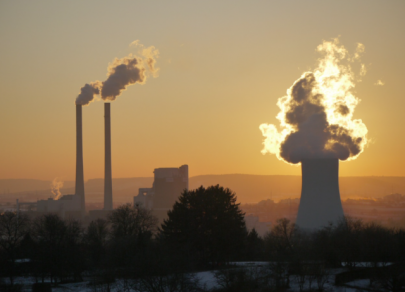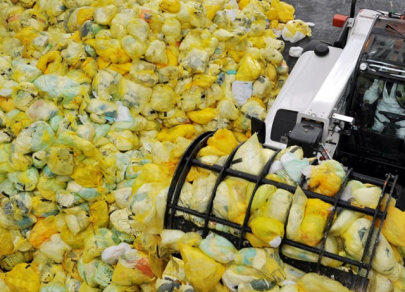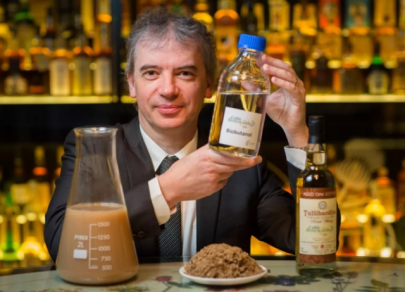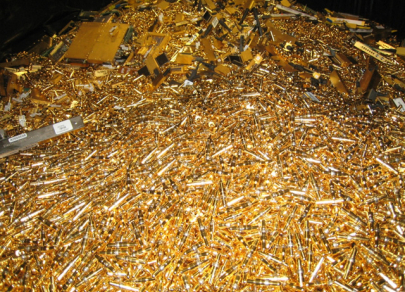FX.co ★ Most unusual projects in the field of raw material recycling
Most unusual projects in the field of raw material recycling
Construction of power plants based on waste incineration
At the end of 2017, the option of joint participation of the T plus energy company and Rostek state corporation in the construction of waste incineration plants generating electricity was actively discussed. Further development of this initiative is possible after the government decides to erect incineration plants in the regions where T plus is present, that is, on the sites of existing thermal power plants. Joint enterprises are planned to be built not only in the Middle Urals (Sverdlovsk region) but also in the Ulyanovsk and Nizhny Novgorod regions.

Creating biofuel from the coffee waste
At the end of 2017, the Bio-bean company started processing coffee waste into biofuel. It plans to turn such waste into a worthy alternative to diesel fuel. So, out of 10 kilograms of used coffee beans, it is quite possible to get 2 liters of fuel. The first objects of the experimental use of the new technology were the famous double-deckers in London where residents drink several cups of an invigorating drink a day.

Making car parts from tomatoes
The Ford has a positive experience of using the car parts obtained from the biological raw materials. The company produces composite materials based on coconut and a foamy filler for automotive seats from soybeans.
Plastic internal components of cars can now be obtained from tomato fibers (skin, seeds), The Wall Street Journal writes.

Extraction of fuel pellets from used diapers
The original idea of recycling class A waste in the Primorsky Territory perinatal center is offered by the Japanese company. The project worthing almost 25,000 dollars is devoted to the production of pellets from used diapers. The industrial park in Nadezhdinsky district of Primorye will become the center of recycling waste which is correlated with coking coal in terms of energy intensity. It is expected that such fuel pellets can be used not only in private houses but also in the industrial economy.

Production of biofuel from whiskey
As reported by BBC News, a successful test drive of a car filled with biobutanol, a fuel made from whiskey waste, was held by the Scottish Celtic Renewables company in the summer of 2017. Receiving a grant from the Scottish authorities amounting to £9 million ($11.6 million) Celtic Renewables is able to begin production of biofuel on an industrial scale: construction of a demonstration plant is planned to be carried out in the city of Grangemouth, Scotland, by the end of 2018. If the experiment is successfully carried out, the enterprise's capacities will be expanded.

Production of fabrics from citrus waste
In 2017, the Italian luxury brand Salvatore Ferragamo presented a collection of clothes which was made of the fabric of Orange Fiber, an Italian company that found an unusual solution to the problem of waste from the production of orange juice. The fabric of the presented clothing models was very soft, had a matte shine and resembled silk which, together with the main idea of the brand (making expensive shirts and dresses more environmentally friendly) attracted the attention of the public to the new collection.

Processing of vegetable oil for aviation biofuel production
Singapore Airlines started implementing a technological solution that will reduce carbon dioxide emissions in the aviation industry. As the Daily Mail writes, in May 2017 Singapore Airlines has undertaken its first sustainable biofuel flight. The biofuel represents a mixture of kerosene and used vegetable oil. The International Air Transport Association (IATA) considers this decision very promising.

Recycling of circuit boards
Electronic devices are a complex mixture of heavy metals and other highly toxic components. It makes them dangerous for burning or landfill disposal. Therefore, the Russian Rosatom proposed an optimal way of recycling such waste, processing them while simultaneously producing a concentrate containing precious and rare-earth metals.
The corresponding application for the processing of 5,000 tons of circuit boards per year was published a month ago on the website of the state procurement of the corporation. The specialists of the leading scientific research institute of State Atomic Energy Corporation Rosatom are planning to engage in the implementation of the promising direction.






















